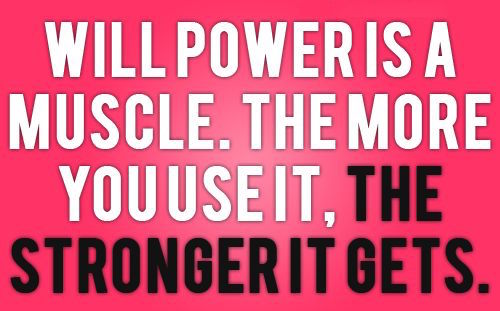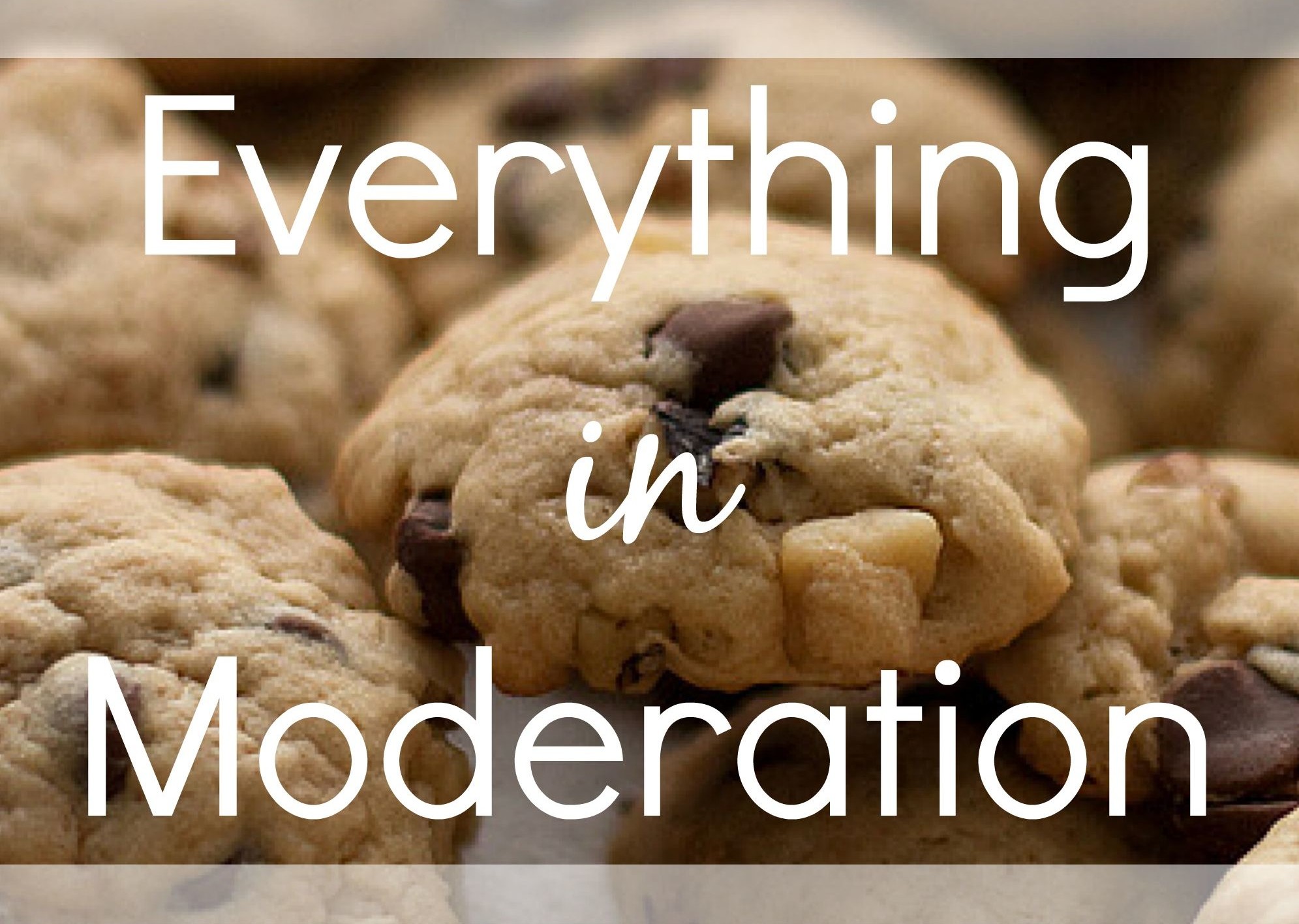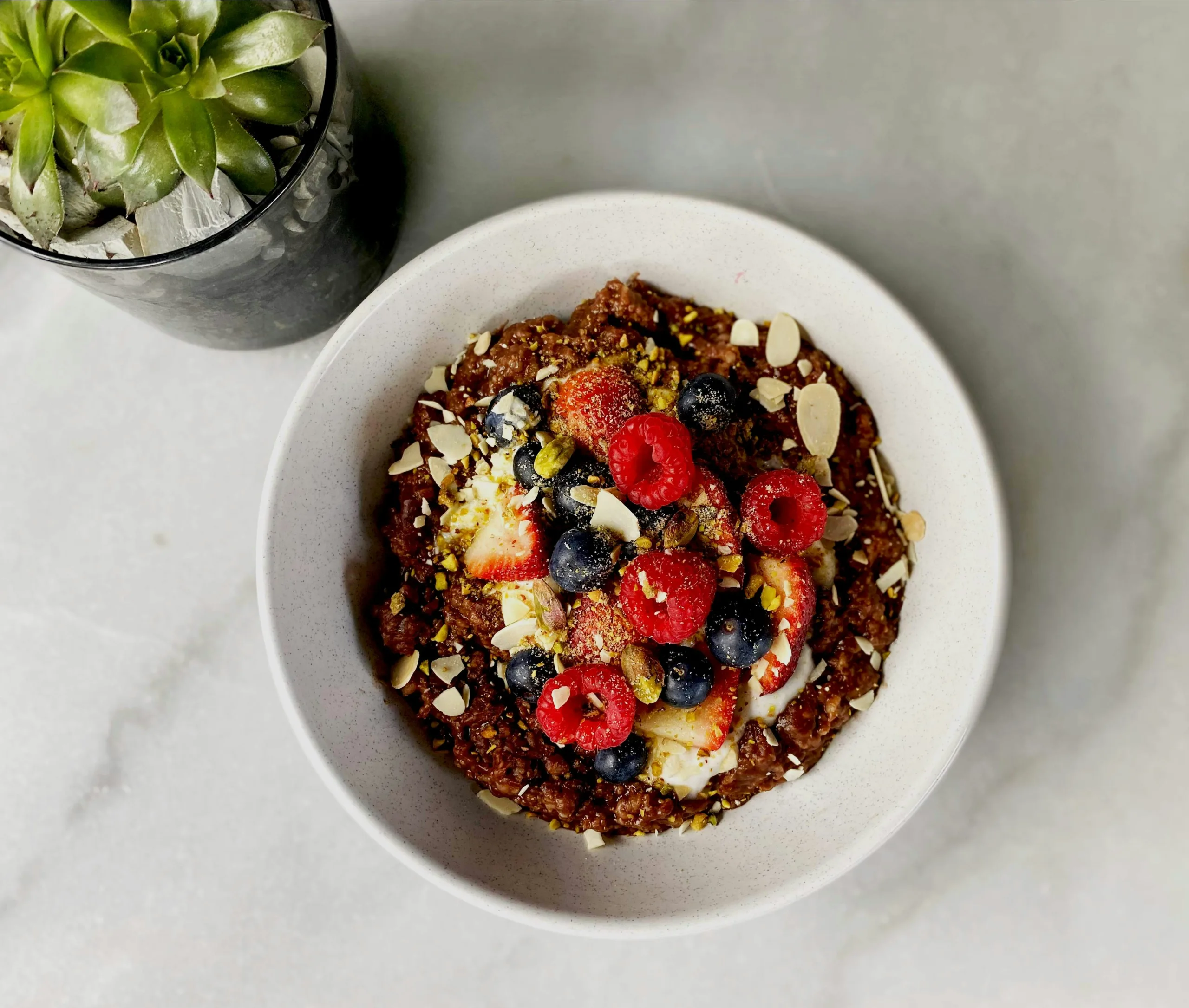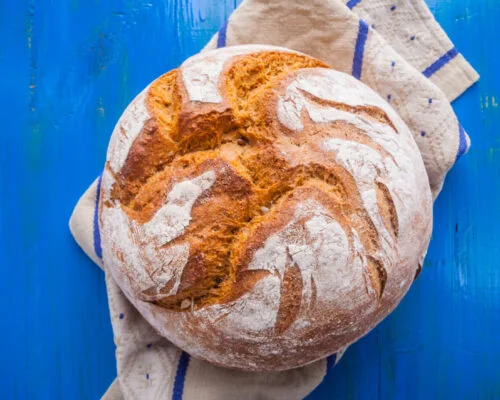You wouldn’t have polished off that pint of Ben & Jerry’s had you had more willpower, right? Weakling.
But, then again, you tried to eat in moderation, and anything is fine in moderation, right?
And besides, you had a guilt-free dinner first, so you have no reason to feel guilty.
Ugh!
If all those online posts, pins, videos and inspirational quotes have been feeding you empowering, good-for-you motivations, then why are you feeling full and mentally crappy at 10 p.m. after a single ice cream overindulgence?
Are we (meaning those of us who are nutritionists, fitness professionals, etc.) giving advice that is doing more harm than good? Are those of us who are looking for motivation really paying attention to our sources for inspiration or the true meaning behind the messages?
The truth is, all of those messages of empowerment and encouragement to eat in moderation, use a little willpower and go guilt-free, could be having the opposite effect and actually hindering your health goals.
So, I want to declare, here and now, a ban on the words “moderation, “willpower” and “guilt”.
Willpower, Moderation and Guilt: 3 Words I Don’t Use
The fact is, social media quotes can sure look pretty, but some of them are doing the exact opposite of what they are intended to do, and it makes me cringe when I see something like this:
Willpower
Willpower is a term that gets a lot of positive attention. But, actually, it’s a term that is very negative. Have you ever said, “I’m not going to eat the cake!” or “I’m not going to eat the pasta!” It’s all negative energy. Why should we focus so much energy on pushing ourselves to not do things? I have found with my clients that this just doesn’t work.
First, it can create stress, and we know what that does: It increases cortisol, a stress hormone. This can cause weight around the midsection, and make us crave the worst types of food. If you’re “stressing out” about eating the pasta, guess what? You may gain weight (without even eating the pasta, due to stress). You’re also likely going to end up eating it, too, because cortisol causes you to crave it more.
I say focusing on positive behaviors trumps willpower every day of the week. I have my clients focus on the cans: you can have the blueberries and a cup of green tea that you love, or you can have a small bowl of pasta as a side dish with a big ole portion of veggies and some lean protein as your main course. Trust me. This works. And, by the way, willpower is actually like a muscle, but the more you use it, the more it gets worn out. This is why we eventually break when we push ourselves to create good behaviors out of willpower.
Moderation
Everything in moderation seems like such an accepting way to approach goals, right?
Wrong. It’s way too abstract to be effective. Ask anybody what “everything in moderation” means to them and each person will give you a different answer. What does moderation really mean to you?
The first problem with this is that when it comes to food, there are some foods that should never be eaten. Yes, just as there are healthy foods, there are also some unhealthy foods. Which is not to say you’re a bad person or an unhealthy person for eating them. As an example, fluorescent orange fried things out of a bag are unhealthy foods. There is no moderation here. Again, this doesn’t mean that you’ve blown your healthy lifestyle if you do indulge here, but there is no serving that is considered moderation. Again, the word is just kind of meaningless.
Wine? Technically two drinks a day for men (no thanks to the new dietary guidelines!) and one for women is moderation. But my guess is someone would say double that is moderation, or others can justify drinking nothing during the week but as much as they want on the weekends.
Chocolate? Well this depends on other indulgences that are eaten and will vary from person to person. For some, a half ounce a day is moderation. For others, an entire chocolate bar in one sitting once a month is moderation.
Broccoli? No moderation. Please indulge more.
I think you get the point.
Moderation is often used as an excuse to do or eat something or stray from a healthy diet. While the “everything in moderation” mantra sounds reasonable, it can often be used as an excuse to expand on poor behavior or confuse people about reasonable goals. Better to educate that same client to think about eating empowered and what she can eat, or teaching him how many conscious indulgences he can work into his plan. It’s all about the mindset behind the actual eating of the cookie.
Guilt-free
The term “guilt-free” is a master for motivating misery. If guilt doesn’t exist in the first place, there is nothing to be free from. In order to learn to never feel guilt around food, we need to stop attaching guilt to it, even in the “guilt-free” way.
“Guilt-free” cookies? Eat this chicken parm “guilt-free”? Isn’t that really saying that if we ate it another way, we should feel guilty?
I know it’s supposed to be positive, but really it’s just exacerbating the feelings of guilt around food. If you choose to eat chicken parmesan, it should be a conscious indulgence. It’s a choice you make to enjoy something delicious that you love, and one that you make willingly from a place of empowerment, knowing you can listen to your body and enjoy. There is no guilt in that, ever.
And therefore changing the ingredients, or baking instead of frying, for example, should not somehow make that meal “guilt-free.” It just makes it healthier, which is all good in my book
Bottom line: We don’t feel empowered eating “guilt-free”; we feel empowered eating from a positive place and listening to our bodies.
Time For a Change in Vocabulary
With so many voices in health and wellness, it can be hard to pick out the ones that really resonate with you. And if you’re the one trying to be heard, are you thinking about what you are putting out there as much as you should? Are you doing it because everyone else is, or because you really believe it? Is your message the one you intend to give, or could you inadvertently be giving advice you don’t fully buy into or love?
I’m not here to judge what you are putting out there. I’m here to encourage you to think about what you’re giving, and what you’re getting. If you beat yourself up because you have no willpower, perhaps you should feel EMPOWERED deciding that that philosophy doesn’t work for you. It doesn’t work for me either.
And, if eating in moderation is something you say flippantly, but you get that twinge of regret when that breadstick hits your lips, then maybe you need to accept that moderation for you may just be an excuse to stray from healthy eating. Let’s re-frame how you choose to indulge (or not).
And, if you ate “guilt-free” French toast this morning, but you still feel guilty about the piece of cake you ate for your co-worker’s birthday, then guess what? It’s OK to remove “guilt-free” from your vocabulary. It’s not in mine.
Just as you put on an outfit every morning, (looking in the mirror to decide if it’s right for your mood and the weather), it’s time to start pondering the same for your inspiration. Where did it come from? Why does it speak to you? Who is sharing it and why do they believe in it?
And if you’re the one posting inspiration about willpower and moderation and guilt—or using these terms with your clients—I’m going to challenge you to challenge me. Why do you believe in it? Why does it speak to your clients and followers? I really want to know, and I’d love to hear your points of view!

































